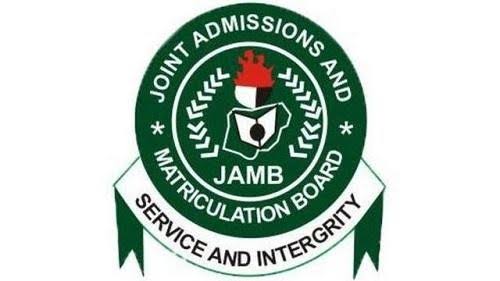In a dramatic turn of events at the National Assembly, officials from the Joint Admissions and Matriculation Board (JAMB) staged a walkout during a public hearing convened by the House of Representatives Committee on Basic Education and Examination Bodies. The incident, which occurred in Abuja, has since drawn nationwide attention and sparked debates over transparency, accountability, and respect for legislative authority in Nigeria’s public institutions.
The committee, chaired by Hon. Oboku Oforji (PDP–Bayelsa), had summoned the JAMB management to defend its 2023–2024 budget performance, explain its Internally Generated Revenue (IGR), and present details of its remittances to the Consolidated Revenue Fund (CRF). However, the hearing quickly escalated into controversy when the delegation representing JAMB objected to the presence of journalists in the room.
Why JAMB Officials Walked Out of the Hearing
According to reports from multiple sources, the JAMB team, led by one of its directors, Mr. Mufutau Bello, demanded that journalists be asked to leave before any presentation could begin. The team argued that the documents they were about to present contained “sensitive information” not meant for public disclosure.
However, members of the committee rejected the request outright, insisting that the session was a public hearing and that the presence of the media was essential for transparency. The lawmakers argued that the Nigerian public deserved to know how funds allocated to education agencies were utilized.
The disagreement quickly reached a breaking point when the JAMB delegation chose to walk out of the meeting hall rather than proceed with their presentation in the presence of journalists.
Lawmakers React: ‘A Dangerous Disregard for Legislative Authority’
The unexpected walkout did not sit well with the lawmakers, who described the act as a disrespectful affront to the authority of the House. Committee members expressed disappointment that the JAMB delegation had repeatedly ignored formal invitations and had again failed to comply with legislative procedures.
Chairman Oboku Oforji revealed that the committee had previously sent three letters to JAMB — dated October 6, 17, and 23, 2025 — requesting specific documents and the physical appearance of the Registrar, Professor Ishaq Oloyede. Yet, instead of the Registrar, a lower-ranking officer appeared at the hearing and then walked out when the committee refused to eject journalists.
One lawmaker, Hon. Awaji-Inombek Abiante (PDP–Rivers), described the walkout as “a dangerous disregard for legislative authority,” warning that such behavior undermines the constitutional powers of oversight granted to the National Assembly.
Committee Issues Ultimatum to JAMB Registrar
Following the walkout, the House Committee issued a strong ultimatum to JAMB’s Registrar, Professor Ishaq Oloyede. The lawmakers demanded that he personally appear before the committee with his full management team and all requested financial documents by Tuesday next week.
They further warned that failure to comply would compel the committee to invoke Sections 88 and 89 of the 1999 Constitution (as amended) — provisions that empower the National Assembly to summon any public officer, enforce attendance, and even issue a warrant of arrest if necessary.
This stern warning underscores the growing tension between the legislative arm and certain government agencies accused of avoiding accountability over public funds.
The Heart of the Matter: Transparency and Accountability
At the core of this drama is the question of transparency in the management of education funds. As the nation’s central examination body responsible for conducting the Unified Tertiary Matriculation Examination (UTME), JAMB handles billions of naira in revenue yearly from candidate registrations and other services.
The House Committee had requested detailed records of how much JAMB generated, how much was spent internally, and how much was remitted to the federal government. However, the agency’s insistence on excluding the press raised suspicion among observers and lawmakers alike, who viewed it as an attempt to shield sensitive information from public scrutiny.
For many Nigerians, this incident raises critical questions:
- Why would a public institution, funded by taxpayers, insist on holding budget discussions in secrecy?
- What information was deemed too “sensitive” for the press and the public to hear?
- How will this affect trust in JAMB’s financial transparency and accountability?
Media Freedom vs. Institutional Secrecy
The clash also highlights a larger tension between media freedom and institutional confidentiality in Nigeria’s governance system. Lawmakers insisted that journalists must remain in the room, citing the importance of openness in legislative oversight.
Public hearings, by law, are meant to be open to citizens and the media, ensuring that public institutions are held accountable in full view of the people they serve. The decision of JAMB’s delegation to reject this openness, therefore, drew sharp criticism from both the legislature and civil society observers.
Many commentators have since noted that the press plays a vital role in upholding democracy and ensuring transparency, especially in education-related matters where billions of naira are involved.
Possible Consequences for JAMB
With the House of Representatives already invoking constitutional powers, JAMB now faces the possibility of sanctions or forced compliance if it fails to appear before the committee as directed. Lawmakers are expected to reconvene next week to review the agency’s response.
Failure to appear could result in:
- A warrant of arrest for the Registrar or any other defaulting official;
- A forensic audit ordered by the House;
- Or possible referral to the Economic and Financial Crimes Commission (EFCC) for further investigation.
Such measures, lawmakers say, are necessary to reinforce the authority of the legislature and protect the integrity of Nigeria’s education sector.
Public Reaction and Stakeholders’ Views
The incident has drawn mixed reactions from education stakeholders and members of the public. While some argue that JAMB’s position on confidentiality may have been justified if the documents truly contained sensitive information, others believe that the walkout was a deliberate act of defiance and an insult to the Nigerian people.
Education analysts have also warned that this development could damage JAMB’s reputation as one of the few agencies once praised for financial prudence and effective management.
Meanwhile, advocacy groups for transparency and education reform have called on the House of Representatives to stand firm and ensure that public hearings remain open and accessible to journalists.
What Happens Next
All eyes are now on Professor Ishaq Oloyede, the JAMB Registrar, who has been directed to appear before the committee next Tuesday. The outcome of that meeting will determine whether the matter ends with explanations and reconciliation or escalates into a full-blown investigation.
If JAMB complies and submits the requested documents, the committee is expected to review the agency’s revenue, expenditures, and remittance patterns — data that could reveal how Nigeria’s education agencies manage their funds in times of economic strain.
However, if the Registrar fails to appear, the committee may proceed with enforcement actions as outlined under Nigerian law.



